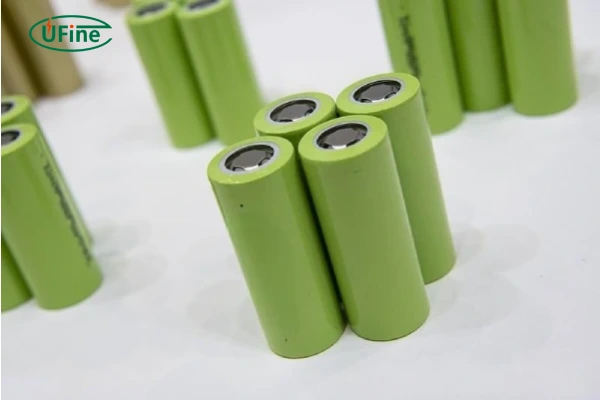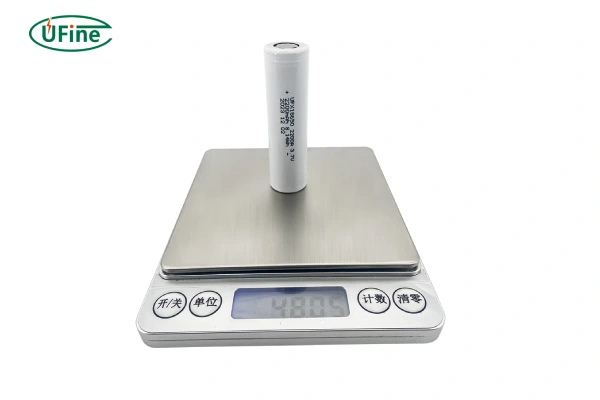A battery is an electrochemical device. It consists of electrochemical cells. It converts chemical energy into electrical energy. Moreover, it can be charged and discharged as well. Batteries are important nowadays as they help with mobility, convenience, and sustainability. So, battery weight plays an important role in affecting the battery efficiency. Besides this, battery weight directly affects usability, portability, cost-effectiveness, and safety features. Moreover, it helps provide more power to various systems and devices. These may include laptops, smartphones, and electric vehicles(EVs).

Part 1. What affects battery weight?
Battery weight relies on several factors that are mentioned below:
1. Battery Design
The key metrics for battery design include energy density and weight. Its design also significantly impacts its weight. The factors that affect its weight include the arrangement of cells, covering materials, and structural components. So, the greater the weight of a battery, the more energy it will store in its cell. As a result, higher power will be supplied to the consumer end. The innovative technique presently produces customizable batteries. It will also result in lightweight batteries.
2. Battery Amplitude/Capacity
It is defined as the total amount of electricity produced due to the electrochemical reactions. The process takes place within the cells of a battery. It is generally expressed in ampere-hours. Heavier batteries have higher capacities. In comparison, Smaller batteries have lesser capacity. With technological advancement, higher capacity batteries can be produced by improving the energy density. It does not increase its weight. So, Its efficiency will also increase. A car battery usually weighs between 13.6 and 22.7 kilograms (30 to 50 pounds). So, it can be heavier for certain types of vehicles.
3. Battery Material
The battery material is also an important factor. It directly affects the battery weight. Suppose the lightweight material is used for its construction. It will help the manufacturers to achieve higher energy density. It will not compromise the safety factor of the battery.
Currently, aluminum alloys, carbon fiber composites, and certain polymers are used. They help minimize the weight of a battery. So it will not affect strength, safety, and durability.
4. Battery Performance
Battery load is a vital factor in its performance. Battery performance depends on several factors. These may include Power weight ratio, deep cycle battery weight, energy density, and efficiency. The power-to-weight ratio of a battery can be increased by reducing its weight or increasing its sustainable power output. Moreover, energy output can be obtained with higher energy density. It will lead to smaller, lighter, and longer-lasting batteries.
5. Battery Chemistry
Battery Chemistry shows the voltage versus performance characteristics. The materials through which the batteries are made have some specific chemistry. Batteries are categorized based on their constructional material. So, each battery type has its characteristics, i.e., power transformation, process handling, and disposal requirements. For example, lithium-ion batteries have high energy density. It has lighter weight characteristics. Moreover, in comparison with lead acid batteries, they have lower energy density. They are also heavier in weight.
6. Battery Safety
Some factors that will impact battery safety are the type, quality, design, capacity, and effectiveness of safety measures. These challenges are encountered during the manufacturing process. It is challenging for manufacturers to make batteries that have excellent quality, design, and long-term effectiveness, along with balancing their weight reduction. They should remember that while reducing the battery weight, its safety and environmental impact factors should not be compromised.
7. Environmental Impacts of Battery
Battery weight plays an important role in terms of their environmental impact. According to the Swedish Environmental Research Agency, 30 kWh of batteries would produce approximately 5 tonnes of Carbon dioxide(CO2) emissions. Battery weight has an environmental impact on their production. Suppose more energy is consumed during its production. This will result in more CO2 generation. As a result, fuel burning occurs in energy production. Moreover, the recycling process for heavy-weight batteries is more costly. In comparison with lightweight batteries.
Part 2. Battery weight chart: Weight of different types of batteries
Here are some batteries with different compositions and applications. As they are made of different materials, the weight of these batteries may vary. So, here are some typical battery weights along with their wide applications in different industries,
| Battery Type | Weight Type | Weight (per unit) | Description |
|---|---|---|---|
| Lead Acid battery | Relatively heavy compared to other battery types | 30-40 kg (66-88 lbs) | Lead Acid batteries are one of the oldest and most common rechargeable battery types. They are known for their low cost and ability to deliver high surge currents. However, they are relatively heavy and have limited energy density, making them less suitable for portable applications. |
| Lithium-ion battery | Lightweight | 0.2-0.3 kg (0.44-0.66 lbs) | Lithium-ion batteries are widely used in portable electronic devices and electric vehicles due to their high energy density and lightweight nature. They offer excellent performance and can be recharged numerous times. However, they require careful handling and have a higher cost compared to other battery types. |
| Nickel Cadmium battery | Moderate weight | 0.5-1.5 kg (1.1-3.3 lbs) | Nickel Cadmium batteries have been widely used in the past but are gradually being replaced by newer battery technologies. They have a moderate weight and can withstand extreme temperature conditions. However, they suffer from the “memory effect” and contain toxic cadmium, which poses environmental concerns. |
| Nickel Metal Hydride battery | Moderate weight | 0.3-0.6 kg (0.66-1.32 lbs) | Nickel Metal Hydride batteries are often used in portable electronics and hybrid vehicles. They have a moderate weight and offer a higher energy density compared to Nickel Cadmium batteries. They are more environmentally friendly than Nickel Cadmium batteries but have a lower energy density compared to lithium-ion batteries. |
Part 3. Different battery weights for different applications
Battery weight requirements vary by industry application.
In electronics, consumer-weight batteries are generally used. Because they are easy to carry around, These may include battery applications in laptops, smartphones, and smartwatches.
Lightweight batteries are widely applied in automotive, telecommunication, and oil drilling industries. They’re generally used to achieve the desired efficiency. Moreover, it will regulate environmental sustainability.
Advanced energy storage technologies help develop lightweight batteries. It will not be compromising the efficiency, design, and capacity factors.
Part 4. Choose Ufine Battery for the right battery weight
Ufine Battery is offering a range of product options. These may include small to large-size and light-to-heavier batteries. Our battery has more capacity to store charge for a long. They have longer life spans. Moreover, we provide batteries for all electronic gadgets. So, if you need a new battery, Regardless of size, we will help you find the correct choice for battery weights and their applications.
So, if you are looking for a lightweight battery or a heavy one. Connect with Ufine Battery. We will cater to your needs. Get your quote now.
Part 5. Conclusion
So, the battery weights are quite significant for the battery’s efficiency. Both heavy-weight and lightweight batteries have their pros and cons. The lighter batteries are useful when it comes to portability. Devices like smartphones, tablets, and laptops need lightweight but portable chargers. On the other hand, machinery that needs more power and robust structure, such as heavy batteries, has a wide scope of applications.
Part 6. FAQs
-
What are the factors that impact battery weight?
Battery weight depends on design, capacity, chemistry, material, and performance. Increasing the weight of a battery does not guarantee improved efficiency. -
Do heavier batteries have a greater environmental impact than lighter batteries?
Heavier batteries have a greater impact on the environment than lighter batteries because the energy used in their manufacturing process is greater. -
What does battery chemistry mean?
Battery chemistry shows the voltage versus performance characteristics. Each type of battery has some special chemistry during its manufacturing process in terms of its energy density. -
Why is battery weight an essential factor in battery technology?
It is essential because consumable electronic devices’ efficiency, performance, and portability depend on it. Heavy batteries increase production costs. In comparison, light batteries are easy to port and portable.
Related Tags:
More Articles

LiPo Battery Discharge Rate Guide & Calculation Tips
Understand LiPo battery discharge rates, C-ratings, and how to calculate max current. Essential guide for RC, drones, and electronics users.
High‑Capacity 3S LiPo Batteries: 5000 mAh vs. 10000 mAh
Compare 3S LiPo 5000mAh vs 10000mAh batteries by weight, power, and use. Find the best fit for your drone, RC car, or boat setup.
Top 5 Applications for Small 3S LiPo Batteries
Small 3S LiPo batteries power drones, RC gear, wearables, and robotics with high energy and low weight. Making them ideal for compact electronics projects.
Building and Charging Your Own 3S LiPo Pack: A Step‑by‑Step Guide
Learn how to build, balance, and charge a 3S LiPo battery pack safely at home with this complete DIY guide for hobbyists and beginners.
How to Choose the Right LiPo Battery Plug Type?
Discover the best LiPo battery plug types, how to choose them, and expert tips for safe usage, soldering, and maintenance.




